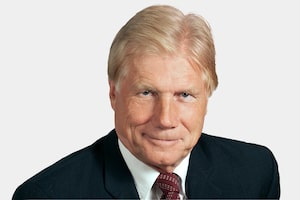Imagine Barack Obama's morning briefing last week.
His chief of staff, with a slice of sarcasm, is giving an update. "Some devastating news from Canada, Mr. President. Stephen Harper says he won't take no for an answer on Keystone."
The President, eyeballs rolling skyward. "Oh, gawd, spare me. What's with this guy? Does he think he's another Vladimir Putin?
It's a safe bet the President isn't taking the Prime Minister's bit of brinkmanship too seriously. "Won't take no for an answer"? A fair bit of Putinian arrogance there. It's something you might say to a bellhop.
Ottawa had already upped the ante plenty on Keystone. Mr. Harper's broadside makes the stakes even higher and bilateral relations even more tense. Through the years, our Conservative PM has been careful not to cross the popular Democratic President and has managed the relationship with considerable tact. Now, it looks like he's tired of playing second fiddle.
He surely knew that backing the President into a corner with ultimatum-like talk was hardly going to advance his chances on the pipeline file. Mr. Obama had just been pilloried for appearing to be pushed around by Mr. Putin. Was he in any mood to have a Canadian leader try it?
The Russian muscle-flexer embarrassed Mr. Obama with an article in The New York Times. Mr. Harper was featured in that venerable newspaper last week as well – berated in an editorial for his anti-free-speech proclivities, notably the muzzling of scientists on the environment file. The White House probably took note.
Throughout Canada-U.S. history, sharp words have been exchanged between leaders. Usually, it's been done behind closed doors. That was the case on another trans-border project of magnitude – the development of the St. Lawrence Seaway. Prime Minister Louis St. Laurent told Harry Truman to get moving or Canada would move ahead on its own. They worked things out quietly.
But it rarely works when prime ministers use threat-tinged talk out loud. When John Diefenbaker pushed back against John Kennedy's administration on nuclear warheads and other issues, he was practically drawn and quartered. It was the same with Lester Pearson when he called for Lyndon Johnson to halt the bombing in Vietnam. And with Pierre Trudeau when he pressured the Reagan White House by way of his world peace mission to negotiate with the Soviets.
Mr. Harper has a strong case on Keystone. He has every right to act with resolve to further Canadian interests. But since his government had already done one in-your-face lobby after another on the pipeline, why take it a step further?
One possibility is that it was just Stephen Harper – who's rarely prepared to take no for an answer from anyone – being Stephen Harper.
Another possibility is that Mr. Harper knew that his long-time parliamentary secretary Dean Del Mastro was about to be hit with charges on alleged campaign spending violations. The ever-political PM may have wanted to make big splashy news on the same day in order to overshadow the negative story.
Another is that Mr. Harper senses that Mr. Obama is no longer quite as popular in Canada, making the Prime Minister less hesitant to take him on. Enough bilateral sugarcoating – let's hit back.
Bob Rae was noting last week how hard-nosed megaphone diplomacy has overtaken Canadian foreign policy. Our diplomats are rarely allowed to speak any more. Our nose is turned up at the United Nations. We exit Iran. Now this on the pipeline project.
But think again of the St. Lawrence Seaway – it took the better part of three decades to get an agreement with Washington to move ahead with the project.
When Mr. Harper said he wouldn't take no for answer, perhaps he was thinking down the line to getting Keystone done with a more compatible White House occupant. The way things look with the present incumbent, that would be perceptive.
 Lawrence Martin
Lawrence Martin